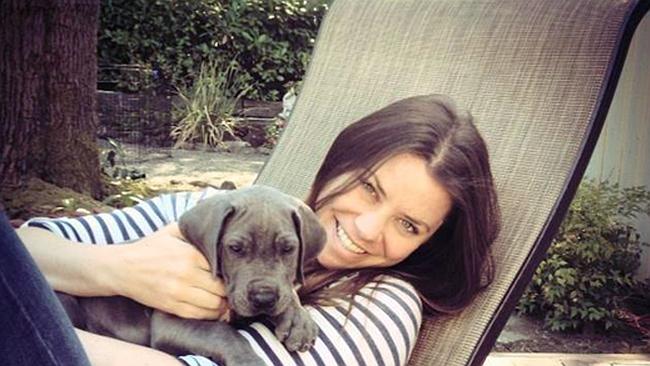
If one day you were diagnosed with a terminal illness that would most likely result in an extremely painful death, and you only had six months to live, how would you react? What would be the first thing to go through your mind after receiving this news? How would you feel? Would you decide to break bad and follow in the path of Walter White, reimagining yourself, becoming an amoral outlaw, living a life filled with adrenaline? Or, would you cherish the time you have, spending it with your immediate family, living life to the fullest as a law-abiding citizen? Choose wisely; you only have six months left to live.
On January 1, 2014, this very scenario was presented to Brittany Maynard, a newlywed to Daniel Diaz in 2012, who was diagnosed with grade 2 astrocytoma brain cancer. Then, making matters worse, in April 2014, Ms. Maynard was reevaluated and diagnosed with grade 4 astrocytoma, also known as glioblastoma multiforme, a much more malignant form of brain cancer, leaving Ms. Maynard with an estimated six months left to live.
After learning of her terminal illness, Ms. Maynard “chose to live each day fully, traveled, and kept as physically active and busy as she possibly could.” On her website, Brittany says that she strove to follow the words of Theodore Roosevelt: “Do what you can, with what you have, where you are.” Living by this formula, Ms. Maynard chose not to let death define her life and actions, but rather to control her death. In doing so, she came to the conclusion that the best way to defeat death is by taking advantage of the Death with Dignity Act.
Death with Dignity is a means of providing terminally ill patients with the choice of taking a prescribed medication so as to end that person’s life. According to the Death with Dignity National Center website, Ms. Maynard was required to be at least 18 years of age, a resident of one of five states in the U.S. which permits this act legally (Oregon, Washington, Montana, New Mexico, and Vermont), capable of making and communicating health care decisions for herself, and diagnosed with a terminal illness that will lead to death within six months in order to be considered a candidate. In addition, Ms. Maynard had to verbally request the medication from her physician twice, with each request separated by 15 days, make a written request to the attending physician, have this request witnessed by two individuals who are not primary caregivers or family members, and be able to self-administer and ingest the prescribed medication.
By taking her life into her own hands, Brittany hoped to “reduce suffering at the end of life and die in comfort and control, with dignity.” On November 1, Brittany Maynard ended her life in her upstairs bedroom with her immediate family beside her, watching as she took her last breath.
The following is my personal view and interpretation of Ms. Maynard’s use of the Death with Dignity Act.
As a member of the Roman Catholic Church, I have been brought up to appreciate life, to appreciate God’s sacred gift to us, and to cherish it until death. More importantly, I believe that no matter how much pain or suffering we endure throughout our lives, God will always be present watching over us. Death is inevitable, and no matter how advanced technology becomes, we will never be able to fully understand the afterlife until we experience it firsthand.
Thus, while reading the article written about Ms. Maynard on CNN.com, I was bewildered at the thought of her taking her own life as a means of easing the pain out of this world and into the next. I felt sorry for Ms. Maynard because of her disease; however, I was completely at a loss as to understanding how a person could willingly take her own life. To be so desperate as to destroy something that God has blessed you with amazes me. I understand that the pain may be truly intolerable, but I do not agree with suicide. After reading Ms. Maynard’s article and website, I could only think of one thing: my grandmother.
My grandmother died from lung cancer, but she also suffered courageously for many years with lupus and rheumatoid arthritis. The difference between the Ms. Maynard and my grandmother, I feel, is that my grandmother was very religious; she believed that God had a plan and would take care of her, knowing that this was an experience God wanted her to have. On the contrary, Ms. Maynard, who may have been just as faithful a woman as my grandmother, did not mention her belief in God once in the articles both in her personal website nor in the articles written about her. My grandmother suffered greatly, but the important thing to remember is that she did not give up hope. Never once did she tell the hospice or the doctors that she was done with suffering, that she was tired of fighting, and that she just wanted a little pill to make all her problems go away.
That is something I strongly support. I support the tenacity, the courage, and the faithfulness of my grandmother, a woman who believed that God was teaching her a lesson, and that no amount of pain would ever convince her that it was right to destroy God’s gift to her. I think it is disturbing how people support Ms. Maynard’s decision of surrendering to death, and what concerns me the most is that her action, backed by the media and bolstered by her own organization Compassion and Choices, promotes the idea that killing oneself should be acceptable in society and that, eventually, “every terminally ill American [should have] access to die on their own terms with dignity.” Not only does this idea go against my beliefs, but it also goes against my morals as well.
Interestingly enough, the organization Compassion and Choices has already posted an article on their website titled “Vatican Wrong to Judge Brittany Maynard for Her End-of-Life Choice, Says Minister” hoping to justify their cause and gain even more support. Obviously, the website attempted to appeal to Catholics by writing an article from the viewpoint of a Catholic theologian who disagrees with the Vatican. Personally, I do not think that the majority of society agrees it is okay to kill themselves or other human beings for that matter.
In an article written by Reverend J. Daniel Mindling, he calls to attention the words of Pope John Paul II: “Dying often includes pain and suffering. Pope John Paul II admitted to his own personal sufferings, and proclaimed that these offered him a new source of strength for his ministry as Pope. We read in Evangelium Vitae (no. 67): ‘Living to the Lord…means recognizing that suffering, while still an evil and a trial in itself, can always become a source of good. It becomes such if it is experienced for love and with love through sharing, by God’s gracious gift and one’s own personal and free choice, in the suffering of Christ Crucified. In this way, the person who lives his suffering in the Lord grows more fully conformed to him (cf. Phil 3:10; 1 Pet 2:21).'” Clearly, Pope John Paul II means that to destroy what God has given, you would eradicate any possibility of growing closer to God.
Reverend Mindling continues, saying, “Even at the stage of terminal illness when proportionate and effective treatment is no longer possible, palliative care is still appropriate and needed. The aim of such care can include alleviating many kinds of physical, psychological and mental suffering.” Thus, the patient is not allowed to “give up,” nor are they allowed to end their life on their own terms.
Although Ms. Maynard gained a new sense of how to live her life, embracing the idea of living it to the fullest and taking advantage of all the opportunities life has to offer, she failed to see the deeper meaning of her disease. She failed to see it as an opportunity to strengthen, or possibly create a previously non-existent relationship with God. By ending her life, she eliminated any remote possibility of survival, and even though she was emphatic about not letting death control her life, ultimately, it did. She let death win over her thoughts, control her actions, and dictate what she could do with the remaining “time” allotted to her by the doctors. She never gave herself the opportunity for God to intervene, to allow for a miracle, to allow for some “what if…?” moment, and as a result, Ms. Maynard destroyed God’s gift to her.
We were brought into this world by the miracle of life from God for His purpose, and it is our obligation to do everything in our power to fulfill God’s plan for us, not our own free will to do what we feel is best.






